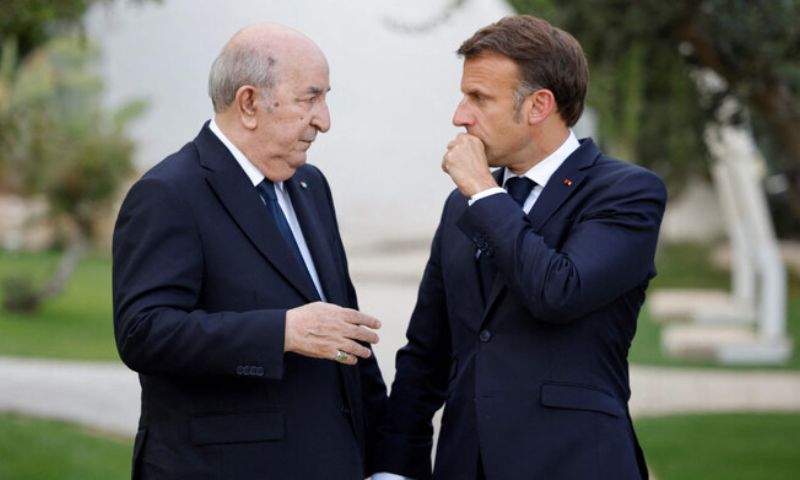ALGEIRS, Algeria: The relationship between France and its former colony Algeria, which had been gradually improving in recent years, has taken a sharp downturn over the issue of Western Sahara. Algerian President Abdelmadjid Tebboune, who is seeking re-election in the upcoming presidential election on September 7, was scheduled to make a state visit to France. However, this visit has been postponed twice, casting doubt on whether it will happen at all. The diplomatic fallout follows France’s decision to support Morocco’s autonomy plan for Western Sahara—a move that Algeria opposes, as it backs the pro-independence Polisario Front.
In response to France’s stance, Algeria withdrew its ambassador from Paris last month, condemning France’s position as “a step that no other French government had taken before.” This dispute has added another layer of tension to the already complex and sensitive relations between the two countries, stemming from France’s 132-year colonial rule over Algeria. The brutal colonization ended in 1962 after a war that claimed the lives of up to 1.5 million Algerians, according to Algerian authorities.
While there have been attempts to heal these deep historical wounds, including the establishment of a joint commission of historians in 2022 to address colonial-era grievances, progress has been slow. Experts argue that the commission has not been effective, largely due to political constraints. The historian Hasni Abidi described recent diplomatic efforts to restore relations with France as a “complete fiasco,” suggesting that the commission was unable to work independently of political influences. France’s recent support for Morocco’s plan threatens to exacerbate these unresolved tensions, potentially reopening old wounds from the colonial past.
Algeria has long demanded the return of looted artifacts, such as the skulls of resistance fighters and items belonging to anti-colonial figure Emir Abdelkader, taken by French forces in the 19th century. Moreover, Algeria seeks reparations for colonial crimes, including the 17 nuclear tests conducted by France in its Sahara desert between 1960 and 1966. Amira Zatir, an adviser at the Emir Abdelkader Foundation, emphasized that many of these items were illegally taken and should be returned.
The memory of colonial violence remains a potent issue in Algeria, especially during election periods. As tensions continue to simmer, Algerian leaders have amplified their calls for France to apologize and offer reparations for its colonial actions. Some historians and former fighters, like Mustapha Boudina, argue that France should recognize its colonization as a “crime against humanity,” a stance briefly endorsed by French President Emmanuel Macron during his 2017 presidential campaign—a comment that drew backlash from the French right.
As diplomatic efforts to reconcile these historical and current grievances falter, the future of Franco-Algerian relations remains uncertain. The rift over Western Sahara could further complicate any chances for genuine reconciliation, leaving both countries to navigate a complicated legacy of colonialism, conflict, and mistrust.























